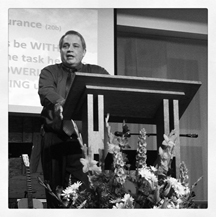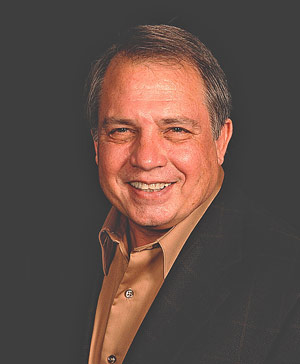“A Piece of My Mind”
November 2013 Newsletter from Donald Shoemaker
Advancing Christian Faith and Values, Defending Religious Liberty for All, Supporting Civility and the Common Good through Preaching, Teaching, Writing, Activism and Reasoned Conversations

“Old North Bridge” (today’s) in Concord, Massachusetts
Here once the embattled farmers stood And fired the shot heard round the world.
– Ralph Waldo Emerson
The British could not dampen the American patriotic spirit on April 19, 1775 in the second of the two local battles that started the American Revolution. What the British couldn’t do, our Federal Government could do. On October 12 my wife and I were nearby, but the government shutdown closed the site.
Message of the Month – A Personal Tribute to Chuck Smith

Chuck Smith, pastor of Calvary Chapel in Costa Mesa, died on October 3rd at age 86. Also seen as the founder of the “Calvary Chapel” movement, he should above all be remembered for his pivotal role in the “Jesus Movement”* of the late ‘60’s and early 1970’s.
Now, at that time I was starting my pastoral career in Indiana. We had heard about this movement but we mostly discounted it as weird and certainly not “of God,” with its guitars and hippies and stuff—about what you’d expect to happen in California! In July of 1970 my wife and I moved to Southern California to find ourselves in the middle of this movement as it peaked.
Quite skeptical, I attended a Monday evening gathering (such gatherings were often called “Jesus Meetings”) at Calvary Chapel in 1971. A mild but very uplifting period of simple and worshipful singing was followed by a l-o-n-g sermon by Chuck Smith on the Book of Revelation. Soon I would learn of his through-the-Bible teaching ministry that was the best thing that could happen for the thousands of converts in this movement. At the end of the service, hundreds stood and embraced and sang “The Lord’s Prayer.”
I should have left when the service ended! But Chuck had said that those who wanted the power of the Holy Spirit should stay for what they called the “afterglow” service. Most left. But some of the young adults from my own church stayed, so our associate pastor and I remained and sat in the back.

Lonnie Frisbee
In spite of this aberration, Chuck personally was a reasonable and moderating force on “Holy Spirit” issues.
Chuck always struck me as an exemplary servant of God with deep humility and simplicity. There was a time when every person on his staff took turns cleaning restrooms. I had a conversation with him one evening when I ran into him at a Christian bookstore. He was carrying out boxes of Bibles.
For the “Jesus” revival, he was the right man in the right place at the right moment. Conservative and yet very open, he molded his ministry to be effective with those God called him to reach. He knew what should be preserved and what should bend or change or be stopped. (When he arrived at his church once to find a “NO BARE FEET” sign posted, he threatened to tear out the new carpet rather than reject people. But even he said it tested him when hippies put those rubber communion cup holders on their toes!) If you attended a Sunday morning service at Calvary Chapel in the 70’s, you would find it similar to any typical Baptist church of the time.
His pastoral model has been a good one to follow in the face of other models (“pastors must be dynamic, visionary, challenging, etc.”) pushed upon us as “the gold standard.” His preaching style was a refreshing contrast to the self-focused, trendy, truncated preaching that is also a part of this “gold standard.”
I didn’t accept all his ideas. Too much on prophecy and its modern fulfillment. And his insistence that “Calvary Chapel” was not a denomination.
The Jesus Movement brought long-lasting change to the broader church, most obviously in Christian worship. In Chuck’s absence, the Calvary Chapel movement will certainly change, but how we don’t yet know.
I will always give thanks to God for the ministry of this man. I will honor him highly, for scripture says those who lead well “are worthy of double honor, especially those whose work is preaching and teaching” (1 Timothy 5:17).
* Wikipedia has a good and concise definition of the Jesus Movement:
The Jesus Movement was a movement in Christianity beginning on the West Coast of the United States in the late 1960s and early 1970s and spreading primarily through North America and Europe, before dying out by the early 1980s. It was the major Christian element within the hippie counterculture… The Jesus movement left a legacy of various denominations and other Christian organizations, and had an impact on both the development of the contemporary Christian right and the Christian left. “Jesus music”, which grew out of the movement, greatly influenced contemporary Christian music…
Religious Liberty Vigilance – Limiting “Bad” Religion?

“Congress shall make no law respecting an establishment of religion, or prohibiting the free exercise thereof…”
– 1st Amendment (Our “First Freedom” in the Bill of Rights)
“Those who expect to reap the blessings of freedom must…undergo the fatigue of supporting it.”
– Thomas Paine
– Thomas Jefferson, Notes on Virginia (1782)
But what if a neighbor’s religion sends preachers or missionaries to pick your pocket (through fraudulent fundraising, for instance) or even to break your leg? Or shoot you as an infidel? Or kill or imprison its own members if they want to change their faith to something else?
Jefferson covered those possibilities: “The legitimate powers of government extend to such acts only as are injurious to others.” Thus, Jefferson understood that, while the government must not attempt to suppress beliefs, there are reasonable limits government can place on religiously-motivated deeds. Freedom of belief is unlimited; freedom of action is not.
This is a belief/action dichotomy that is both necessary and dangerous. Necessary, in that the government has the duty to protect. Dangerous, in that the government can use its power to limit and even punish ordinary religious practices and convictions that don’t endanger anyone.
This power was applied in the 1878 “anti-polygamy” Reynolds v. U.S. decision by the U.S. Supreme Court. The court said that the government had a legitimate state interest in limiting the right to marry to monogamists. You can believe in polygamy all you want to; you just can’t practice it in American territories. [See a summary of this court case at the end of this newsletter.] Decide for yourself whether this “definition of marriage” decision was “Jeffersonian” or not.
If I understand Jefferson correctly, he would use extreme-case examples such as child sacrifice or religious ceremonies that consume food during a time of famine as occasions to limit free exercise of religion. To use a modern example, I may claim the faith to be healed and then reject medication for myself, but the government may step in and limit my free exercise of religion if my child has diabetes and I “claim a faith healing” and refuse him treatment.
The First Amendment bans any law that prohibits the “free exercise” of religion. Now, “exercise” of religion is “faith in action,” not just “faith.” To put it in Bible terms, “Faith by itself, if it is not accompanied by action, is dead” (James 2:17 NIV). Anyone who is truly religious will “exercise religion.”
Government may rightfully limit religious activity that subverts the peace or violates good order (conservatively understood) or threatens the person or property of another. Government must not have the right to limit the free exercise of religious conviction that resists a governmental crusade to impose a statist social agenda (today it’s leftist ideology, tomorrow it could be right-wing) or to place an unnecessary burden on religion. Even a justifiable burden on the free exercise of religion should be laid as lightly as possible.
One more time. Jefferson said, “The legitimate powers of government extend to such acts only as are injurious to others.” I believe Jefferson would be appalled at the governmental restrictions and attempted restrictions on the free exercise of religion that are growing today.
Don’s Upcoming Ministries

November 2 – Speak on Police Chaplain service at a Grace Community Church men’s breakfast. The breakfast is at 8:30 at the new Malarkey’s Grill (located where Buster’s used to be at Seaport Village, just over the Marina St. bridge into Long Beach).
December 10 and 13 – Speak on the Book of Acts, chapter 11 at women’s Bible study groups at Grace Community Church.
Bible Insight: God’s Rules Are Higher than Man’s Rules
Creation Ethics: God created our bodies and surrounded us with an abundance of things we could enjoy or abuse.
“Jesus called the crowd to him and said, ‘Listen to me, everyone, and understand this. Nothing outside a man can make him “unclean” by going into him. Rather, it is what comes out of a man that makes him “unclean.”’
“In saying this, Jesus declared all foods ‘clean.’”
– Mark 7:16 and 19 (NIV)
The great Moody Bible Institute is among the latest of Christian institutions to “lower the standard” by permitting its faculty to drink alcoholic beverages.
I’ve heard this kind of argument: “Drinking alcoholic beverages is not a sin. But since alcohol is so abused in our culture, Christians should abstain from it as a testimony to others that they don’t need this in their lives.”
On ethical questions I will sometimes shift the categories to other issues and test how an argument stands up. In this case, let’s switch the words from “drinking” to “having sex.” How would this argument sound? “Sexual relations between husband a wife are not a sin. But since sexual activity is so abused in our culture, Christian couples should abstain from it as a testimony to others that they don’t need this in their lives.”
What kind of a testimony is that? Spurning God’s good gifts (subject to much abuse, of course, by sinful people) in the name of higher spirituality or some notion of “witnessing”? Really, it is witnessing that’s sure to backfire!
This kind of thinking is a form of “Gnosticism.” Gnosticism, a trend in Christianity today and through much of its history, says that there is a higher spirituality found in the realm of the soul rather than the realm of the body. One way to experience this higher spirituality is through suppression of bodily appetites. Ultimately, full salvation involves an escape from the body and a flight into the realm of the spirit.
Gnosticism has been roundly condemned by Christian theology, but it pops up again and again in popular Christian attitudes toward “spirituality” and what “separation from the world” is all about. In early Christianity, the Apostle Paul warned against an incipient Gnosticism with these words:
The Spirit clearly says that in later times some will abandon the faith and follow deceiving spirits and things taught by demons. …They forbid people to marry and order them to abstain from certain foods, which God created to be received with thanksgiving by those who believe and who know the truth. For everything God created is good, and nothing is to be rejected if it is received with thanksgiving, because it is consecrated by the word of God and prayer. (1 Timothy 4:1, 3-5)
And Paul reminded one church prone to arguing over such matters (what a timely thought!): “The kingdom of God is not a matter of eating and drinking, but of righteousness, peace and joy in the Holy Spirit” (Romans 14:17).
Remember this: when a Christian or a church or Christian institution examines and changes the standard, if it goes from man’s standard to God’s standard then the standard has not been lowered. It has been raised.

Good News from Grace
Thanksgiving season will soon be upon us, and Christians are especially thankful for Jesus Christ and what his life and death mean to us. “Communion” services are times of thanksgiving. The word for Eucharist (the bread and cup of Communion) actually means “giving thanks.” Grace Community Church of Seal Beach will hold its Thanksgiving Communion Service on Sunday evening, November 24. It is one of the key events of our church year.

A Verse and Hymn for Thanksgiving in November
“[God] has shown kindness
by giving you rain from heaven and crops in their seasons.
He provides you with plenty of food and fills your hearts with joy.”
– Acts 14:17 (New International Version)

Fall foliage seen in Vermont this October
For the beauty of the earth For the glory of the skies,
For the love which from our birth
Over and around us lies.
Lord of all, to Thee we raise,
This our hymn of grateful praise.
– Folliot S. Pierpoint (1864)
Reynolds v. United States (1878) (Popularly known as the “Mormon polygamy” case)
Facts of the Case
George Reynolds, secretary to Mormon Church leader Brigham Young, challenged the federal anti-bigamy statute. Reynolds was convicted in a Utah territorial district court. His conviction was affirmed by the Utah territorial supreme court.
Question
Does the federal anti-bigamy statute violate the First Amendment’s free exercise clause because plural marriage is part of religious practice?
Conclusion
No. Chief Justice Morrison R. Waite, writing for a unanimous court, held that the statute can punish criminal activity without regard to religious belief. The First Amendment protected religious belief, but it did not protect religious practices that were judged to be criminal such as bigamy. Those who practice polygamy could no more be exempt from the law than those who may wish to practice human sacrifice as part of their religious belief.
REYNOLDS v. UNITED STATES The Oyez Project at IIT Chicago-Kent College of Law



